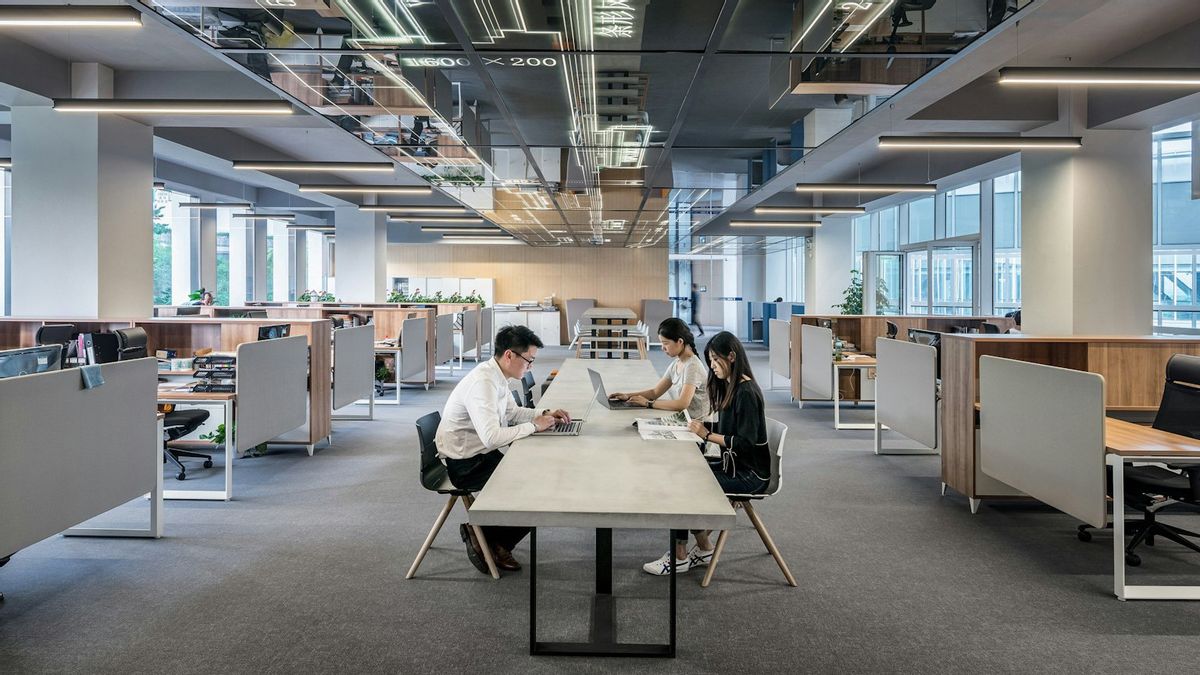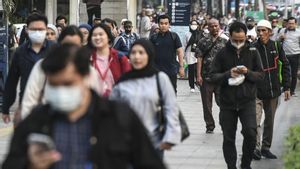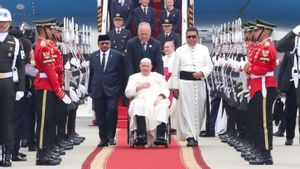JAKARTA - Commission XI of the House of Representatives highlighted the significant decline in the number of middle class in Indonesia. This is a serious problem that can have an impact on the country's economy.
"The number of middle class people who are getting more and more concerned must be considered together and must be handled immediately. The government must immediately take appropriate strategic steps," said Member of Commission XI DPR RI Charles Meikyansah, Friday, September 6.
The Central Statistics Agency (BPS) shows that the number of middle class residents has dropped dramatically. Where in 2019 the number of residents who entered the middle class was still around 21.45 percent of the total population of Indonesia or 57.3 million people. In 2024, the number of middle class residents was only 17.44 percent or 47.85 million people.
Over the past five years, 9.48 million people have dropped class, some have become groups 'to the middle class' or middle class between the middle class and the poor vulnerable class. Then there are middle classes that fall two levels down to become 'poor prisoners' groups.
For information, BPS noted that this downward trend began to occur in 2020 during the Covid-19 pandemic. Even though they are the main driving force for national economic growth.
"This decline indicates that many people are in vulnerable situations, where they can fall into poverty if there is an economic shock such as an increase in the price of basic necessities, job loss, or an economic crisis," he said.
SEE ALSO:
"We must remember, the main characteristics of a modern, democratic, and prosperous country are the thickness of the middle class so that prosperity is spread evenly. But what happens in Indonesia is the opposite," Charles explained.
"So this issue must be an alert for the Government to act immediately in order to maintain economic stability by strengthening the social safety network, to protect those who are now entering the middle class and vulnerable poor groups so that they do not go further down to vulnerable poor groups," he continued.
Charles emphasized that the Government must maintain and strengthen the middle class. Because, a strong middle class will create a more stable, inclusive and sustainable economy for all Indonesian people.
"Maintaining and strengthening the middle class in Indonesia must be a priority for the Government above other development programs," said Charles.
The middle class criteria are those whose expenses range from 3.5-17 times the poverty line set by the World Bank or around Rp. 2,040,262 Rp. 9,909,844. Meanwhile, the criteria for the middle class for expenditure range from 1.5-3.3 times the poverty line or around Rp. 874,398-Rp. 2,040,262 per capita per month.
Commission IX of the House of Representatives in charge of financial affairs and the country's economy reminded that medium-class growth is highly dependent on access to stable and quality jobs. For this reason, Charles asked the Government to encourage investment in sectors that create sustainable jobs such as the manufacturing, technology and creative industry sectors.
"People's welfare is the root of various other problems that will be difficult to overcome if not handled immediately. The skills and certification training program must be expanded to increase the competitiveness of Indonesian workers, so that they can access jobs with better and more stable income," he explained.
Charles is worried that if the Indonesian middle class continues to decline, it will affect the country's economy which ultimately has an impact on the welfare of the people.
"Without a healthy middleweight, we will see a negative impact that extends to future economic growth and social well-being," Charles said.
The government is also considered to need to encourage the development of micro, small and medium enterprises (MSMEs) and entrepreneurship in the community. Theung middle class group, said Charles, also has great potential to become entrepreneurs if given the right support.
"Provision of access to finance, business training, and regulatory support that facilitates the development of MSMEs is very important to support the growth of the middle class," explained the legislator from the East Java IV electoral district.
Furthermore, Charles said the Government needs to ensure that quality education can be accessed by all levels of society, including the nice middle class group which is sometimes considered "alone" economically when actually experiencing difficulties because it is in a squeezed position.
According to Charles, several incentives that can be provided for the group, such as scholarship programs, improving teacher quality, and improving education infrastructure in remote areas, should be a priority.
"Those who are in the middle class level are often forgotten. They actually need help or attention from the government, but because they are considered sufficient, they are not included in the criteria for beneficiaries. Even though they are also mediocre and often in a pinched condition," he said.
"All people need access to affordable and quality services without exception. Including strengthening the National Health Insurance (JKN) and employment system, as well as social and financial assistance for theung middle class group," concluded Charles.
The English, Chinese, Japanese, Arabic, and French versions are automatically generated by the AI. So there may still be inaccuracies in translating, please always see Indonesian as our main language. (system supported by DigitalSiber.id)

















